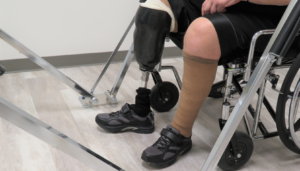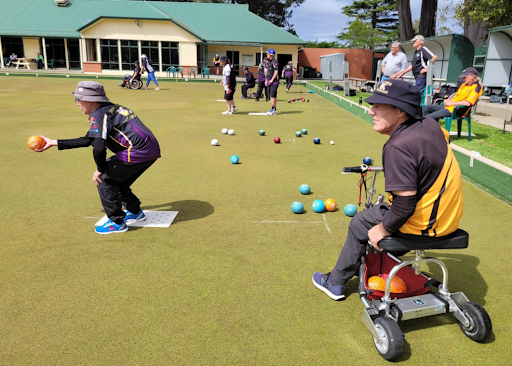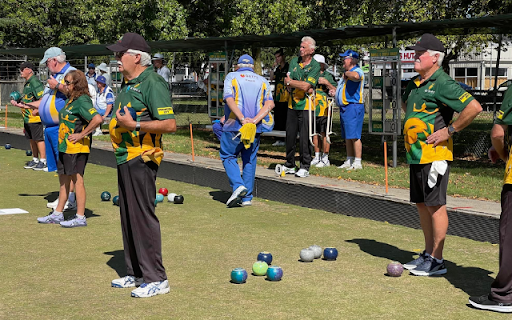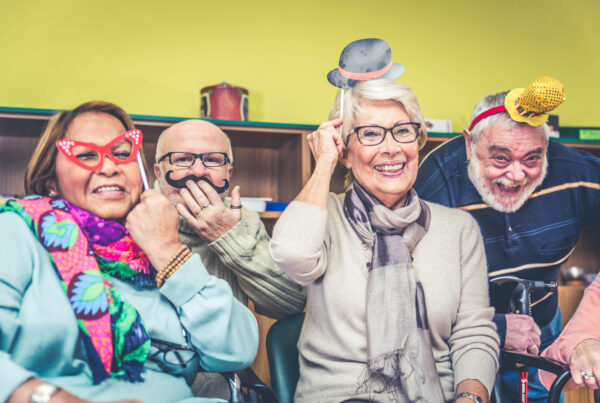When I lost my right lower leg to diabetes in the first year into my retirement, I thought my world had ended.

Calls from my doctors for ‘lifestyle adjustments’ during the peak of my corporate career went largely unheeded. Besides, I’d rationalise to myself, there’d be time to make adjustments after the next acquisition or in my retirement.
What I didn’t factor on was the compounding effects of immobility. I started stacking on the weight. I experienced phantom limb pain as well as residual limb pain; I also had wound healing issues. The rapid weight gain not only killed my libido, I could sense it subtly redefining my marriage.
I looked at prosthetics but hard as I tried, I could never find my balance and my confidence levels were shot to pieces. So, I’ve largely been confined to a wheelchair.
As if things couldn’t get any worse, my doctor is now warning me that I may also experience complications like DVT, pneumonia, and even heart problems if I don’t get up off my fat ass.
I guess as confronting as the physiological problems were, my biggest problem was definitely in my head. Even though I was surrounded by a loving family, I somehow felt unworthy, even unlovable. I became more aloof. Initially, I avoided anything that required packing a wheelchair into the car. Eventually, I just started avoiding anything that took me out of the house. I arranged most of my medical / physio check-ups to be conducted at my home. Although I knew my growing isolation was self-imposed, it was becoming overwhelming. I went from being a corporate high-flyer to a recluse, a hermit.

Life looked grim from where I was looking, until I had a change of exercise physiologists. Dave was ex-army and was a lot tougher than the last guy (who had a nose ring!). His approach to flexibility / building muscle tone was (as you’d expect) quite regimented. He quickly worked out my pain thresholds so to Dave, anything below ‘threshold’ wasn’t good enough. He was a tough taskmaster, and I felt he was putting me through some kind of ‘cripples’ boot camp’. But strangely enough, I persevered.
What became clearer to me as he ran me through a structured program was that Dave was a good exercise physiologist, but he was an even better counsellor. He warned that if I didn’t change my lifestyle now, in time, I wouldn’t be able to.
Six weeks ago, he rang to tell me he was substituting our scheduled in-home session for a field trip. I argued with him that I didn’t do ‘field trips’. He rejected my argument, outright. He said to be ready and that I wouldn’t need to bring my wheelchair – he was bringing his own!
Dave took me to the Brighton Bowls Club. I argued all the way there, admonishing him for having effectively kidnapped me!
Dave pulled out his special Bowls wheelchair from the boot (wider wheelchair tyres than standard to ensure the playing surface isn’t damaged) and virtually threw me into it (pay-back I’m guessing for me being so belligerent in the car trip over).
Dave introduced me to several club members who quickly signed me up. What struck me from the outset was high engaging everyone was. I didn’t realise that Bowls Australia and other organizations actively support the inclusion of wheelchair users in the sport and that wheelchair bowlers compete using the same rules as able-bodied players. The atmosphere at the club ultra-inclusive. They catered to players of all abilities, from club to elite levels. When I learned the best club player was also wheelchair-bound and a future paralympic Boccia contender, It reignited my competitive ‘win-at-all-costs’ streak.
It took five or six visits before I realised I was hooked. All of a sudden, I found myself exercising more and taking flexibility classes at my local gym to improve my reach and so I wouldn’t have to rely on the use of artificial devices like “bowler’s arms” to assist with delivering the jack or bowl.
To my surprise, I’m becoming active in the club’s social activities and am even considering campaigning for a Club board position.
Dave even said he’s prepared to help me revisit prosthetics again, in order to reduce the chances of a ‘short bowl’ and to provide sufficient pace to push an opponent’s bowl away.
All of a sudden, retirement on one good leg isn’t so bad anymore!

Life’s later years can bring unexpected health challenges, but they don’t have to define your third chapter. At Life Minus Work, you’ll find a supportive community of like-minded individuals and engaging experiences designed to enrich your well-being, whatever your circumstances. Click here to join today!








